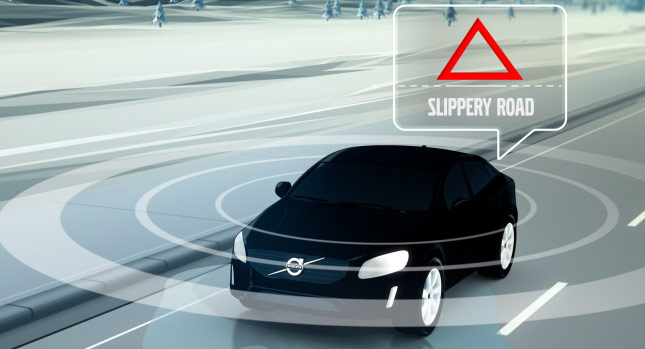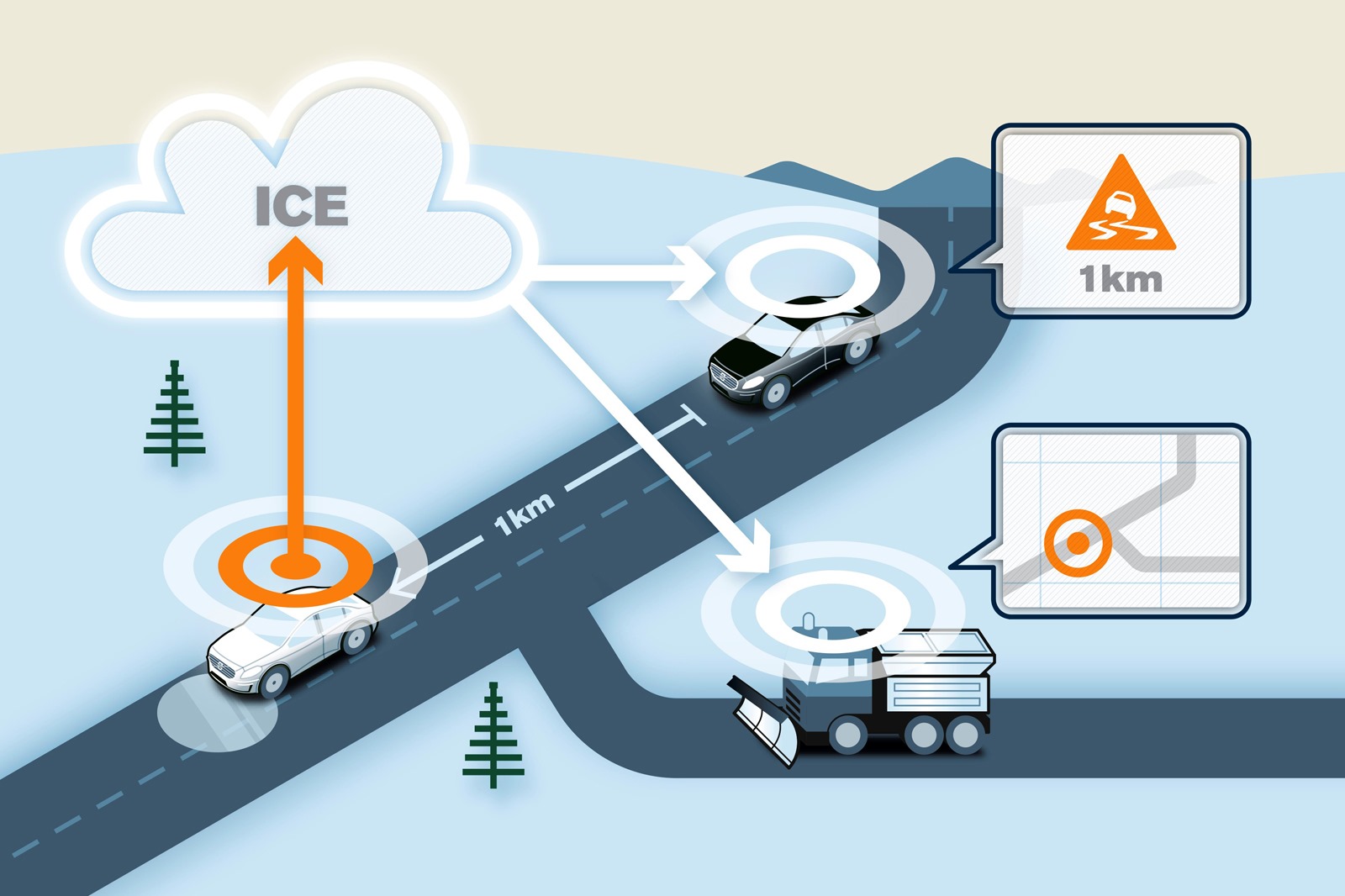Volvo Uses the Cloud to Improve Road Safety For All
Mar 25, 2014 20:03

Volvo teamed up with the Swedish Transport Administration and the Norwegian Public Road Adminstration to launch a pilot program to record and store "road friction information from individual cars shared within a cloud-based system".
The system will record grip levels and mark and alert areas that are reported to be slippery or hazardous. This data will be able accessible by those who are connected.
Currently operating 50 test cars, the goal is to get the technology up and running within a few years. The principle relies on a cloud-based database where if one car detects a patch of ice for instance, that information will be available for those in its vicinity to practice caution.
It will also be sent to road administrators to address the issues.
Erik Israelsson is the Project Leader Cooperative ITS (Intelligent Transport System) at Volvo Cars and he explains it more plainly: “When the road administrator has access to information from a large number of cars, the data can be used to make winter road maintenance more efficient. The information could help to improve road safety further for all road users. This could also reduce the use of salt when not needed and minimise the environmental impact.”








































































